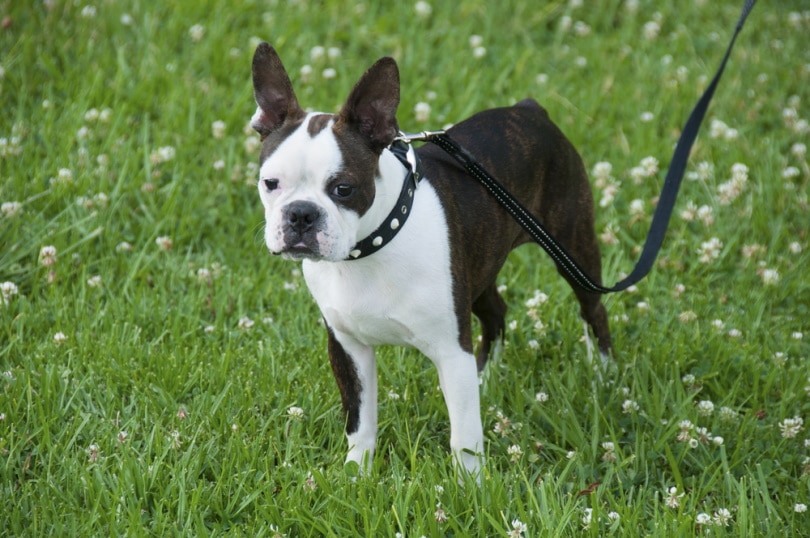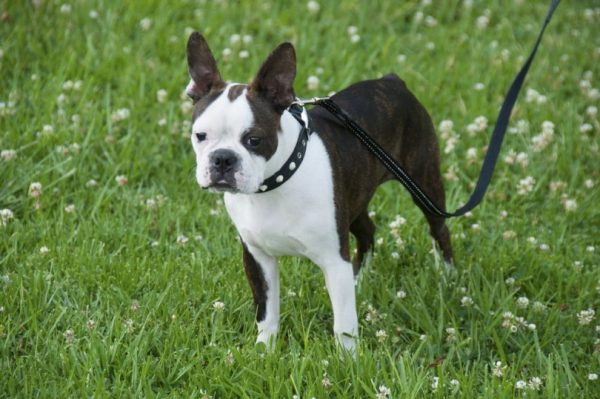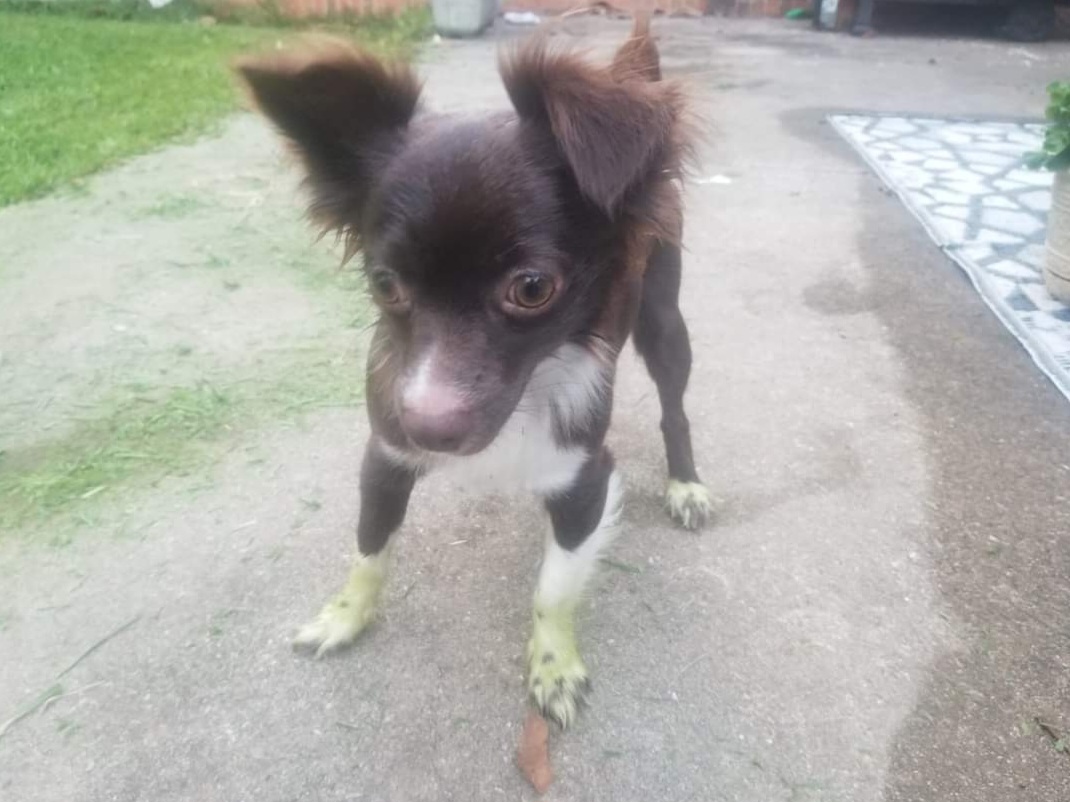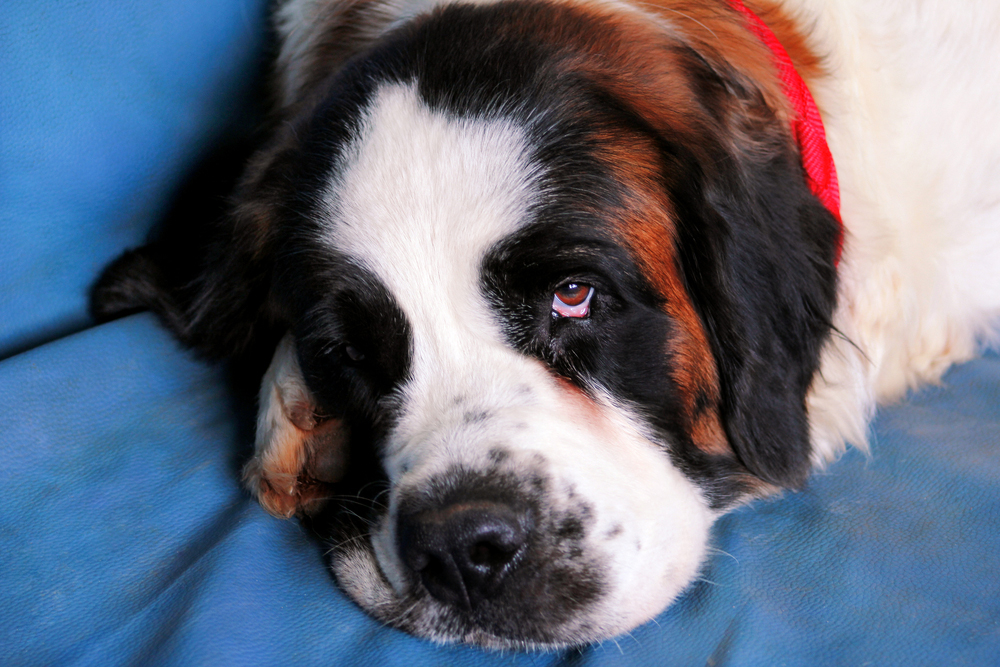Click to Skip Ahead
Boston Terriers originated from (you guessed it) Boston and are known for their tuxedo coats and good manners. They’re small, only weighing around 12–25 pounds and standing 15–17 inches tall. They are active and fun-loving dogs that make excellent family pets, given the right socialization as a puppy.
So, you might wonder how long this rambunctious gentleman will live before you bring one into the family. The average lifespan of a Boston Terrier is 11–13 years, but several factors affect their longevity. And with this knowledge, you’ll be in the best position to ensure your pet lives a long, happy, healthy life.
Boston Terrier Average Lifespan
On average, Boston Terriers live 11–13 years, and the length of time will be affected by various factors, some that you will have control over and some that you won’t, like lifestyle and genetics. So, let’s look closely at what will affect your Boston Terrier’s lifestyle and what you can do about it.

Why Do Some Boston Terriers Live Longer Than Others?
1. Feeding & Diet
Your Boston Terrier will need a balanced, high-quality diet to ensure they get everything they require for a healthy life. Choose food designed for small breeds to ensure they get the proper nutrients and their food won’t pose a choking hazard.
Your veterinarian can help you with how much to feed your dog, but so can the instructions on most dog food labels, which will tell you how much is required based on your dog’s age, weight, and size. You will then also have to factor in their lifestyle; dogs that are busy bees will need more food than couch potatoes. Generally, they will need to be fed two meals daily.
Weight management plays a really important part in your Boston Terrier’s overall health and lifespan. Monitor their weight and contact your vet clinic for help if you have any concerns or there are signs of them getting overweight.

2. Environment
The living environment that you create will affect your Boston Terrier’s physical and mental well-being and ultimately affect their lifespan. Dogs need somewhere to play, toys to play with, time with their humans, a comfortable bed, access to fresh water and food, and somewhere to go when they need time to be alone.
If you don’t provide enough stimulation, they can become bored, which leads to undesirable behaviors like scratching up furniture or barking and can be stressful for your dog and you. It is up to you as their pet parent to create a comfortable, safe, clean living experience that meets all their needs.
3. Exercise
The Boston Terrier’s needs will vary from dog to dog; some will be happy enough with a brisk walk once or twice daily, while others will need to run about too. Simply letting your dog outside into the yard won’t be enough to let them blow off steam, and without enough stimulation, your dog will begin to develop undesirable behaviors.
Boston Terriers are also a brachycephalic breed, which means they have some special considerations regarding exercise. Their flat faces and cute snub noses can cause respiratory issues and make it difficult for them to regulate their body temperatures in warm weather. This puts them at higher risk of overheating.
To help your Boston Terrier, you should avoid walking at peak times in summer and keep them cozy in jumpers and jackets in winter. Bringing water with you on a walk is also helpful; take plenty of breaks and ensure your Boston Terrier doesn’t overexert themselves.

4. Genetics & Healthcare
Boston Terriers are known to be more prone to some health conditions. How you deal with these conditions can affect their lifespan, so let’s take a look at some now.
Brachycephalic Syndrome
We’ve touched on this already and how it affects their exercise needs, but what exactly causes their respiratory issues? Like many flat-faced breeds, Boston Terriers have short muzzles, flat noses, small nostrils, and often a long soft palate. All of these factors obstruct the passage of air through the nose and throat.
Surgery can help with this condition. It’s also essential to ensure your dog eats healthily and gets enough exercise, as obesity can exacerbate their breathing problems.

Eye Disease
Boston Terriers have prominent eyes, making them more likely to incur eye injuries. Ensure the environment is set up for safe play so your dog doesn’t injure their eyes on objects they shouldn’t go near. They can also suffer from corneal ulcers, cataracts, and glaucoma. You should make sure your Boston Terrier is checked by the vet regularly.
Patella Luxation
A luxating patella is when the kneecap (patella) slips out of the groove it normally sits in. When it dislocates, it stops the knee from bending and rubs on the bone as it moves. In time this can cause your Boston Terrier pain, and lead to arthritis. Some dogs with mild patella luxation don’t need treatment, but medical and surgical treatment options are available which your vet will discuss with you based on the severity of the condition.

5. Lifestyle
Before getting a pet, it’s a good idea to take time to research them. For example, if you live in an apartment and the dog you’re looking into is large, it might not be a suitable choice.
Boston Terriers love spending time with their families, and if left alone for too long, they can exhibit undesirable behaviors. If your social life and work keep you out of the home and away from your dog for long periods every day, they might not be the right match.
Boston Terriers are small and adaptable, so they do well in apartment living or larger homes and thrive in many environments, even urban living. But their health problems require taking extra precautions when going for walks.

 The Life Stages of a Boston Terrier
The Life Stages of a Boston Terrier
Puppy
Natural births are very uncommon for Boston Terriers, and puppies are delivered by Cesarean section (around 80% of the time), and generally, only 3–4 puppies are born in a litter. They are considered a puppy until about 6-9 months and will reach sexual maturity.
Young Adult
Boston Terriers will have heaps of energy and often be mischievous at this age. They will reach the end of adolescence at around 12 to 14 months old and stop growing around that time.
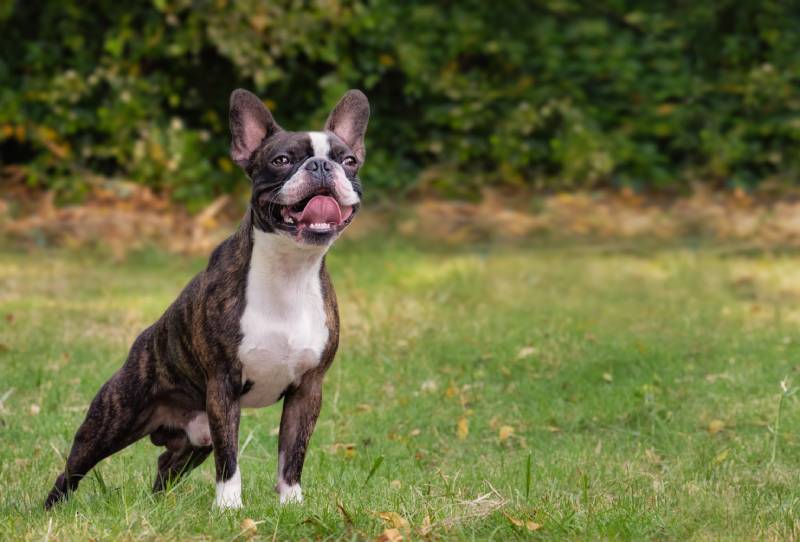
Adult
As your Boston Terrier matures, they will settle into their adult personality. They may be less energetic but will still want to play, and you will need to maintain their enthusiasm for exercise to keep them fit and healthy.
Senior
By the time they reach around 7 or 8 years old, the Boston Terrier is considered a senior. You might notice they are less active and they may sleep more. There may also be more serious health conditions cropping up, such as arthritis, so it’s imperative that you keep up to date with vet visits to catch any problems early.
How to Tell Your Boston Terrier’s Age
If you purchase your dog from a breeder, there will be documents that will tell you exactly how old your dog is. However, determining your Boston Terrier’s age is more of a challenge if they have been adopted. There are ways to estimate age, and your vet can help, but it isn’t an exact science and won’t give you a definitive answer.
First, if your Boston Terrier hasn’t reached their top weight, it is safe to assume they haven’t reached full maturity. Your dog’s teeth will also indicate their age—if they don’t have all their adult teeth yet, they’re still a puppy. And the condition of the teeth will also help your vet estimate how old they are as teeth change over time. If your dog is graying around the muzzle or eyes, has cloudy eyes, and is not very active, it may indicate they are a senior.

Final Thoughts
Boston Terriers tend to live for around 11–13 years, and their longevity will be affected by factors such as health conditions and genetics, lifestyle, exercise, nutrition, and their environment. Their physical and mental health will all affect their lifespan, which means if you take proper care of your Boston Terrier, they could outlive the average!
Featured Image Credit: eClick, Shutterstock

